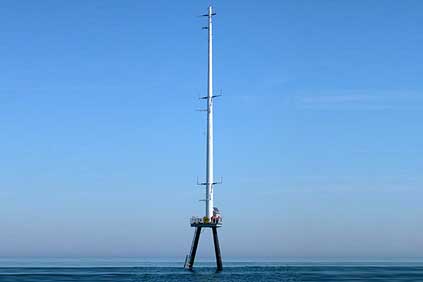The agreement comes less than two weeks after company's permitting approval by federal regulators. Reaching a price agreement with regional utility National Grid is a considered a big and positive step for the developers. However, it is conditional on approval from state regulators, the Massachusetts Department of Public Utilities (DPU).
Offshore wind is considerably more expensive than onshore wind but the price on offer is considered quite high by observers in the wind industry. Beginning in 2013, National Grid would buy half the wind project's output at $0.207/kWh for 15 years, with annual inflation adjustments of 3.5% over the 15 years.
"That definitely strikes me as high, however the New England area has some of the highest electricity prices in the United States," says Daniel Shreve, director of US research for MAKE Consulting.
"Moving power from offshore wind farms to nearby load centres in coastal Massachusetts could be a more cost effective means of harnessing large amounts of renewable energy versus some very extensive, and extremely expensive grid upgrades and/or grid build-outs over land."
Massachusetts, and the New England region in general, have a substantial need for new renewable energy sources to meet state mandates for clean energy and its on-shore wind resources are very limited.
Because power contract costs between generators and utilities are passed on to local electricity ratepayers, the DPU could decide the cost is too high and reject the contract. This happened with a similar offshore project planned for Rhode Island.
Projections from Cape Wind and National Grid forecast that the wind plant will translate to a total monthly bill increase of $1.59, roughly 2% per month, for a typical residential customer who uses 500kWh per month.
Utility regulators throughout the country sometimes turn down wind PPAs and other proposed contracts over cost. "There's precedent out there that says this might be too high," says Shreve.
"There could be a scenario where state regulators come back and says this is too high, you can't do it, the developer will have to evaluate how they can make it cheaper, possibly through turbine pricing, or reducing project rate of return expectations.
"In this case, install costs are going to be quite high because the necessary infrastructure is not in place. I imagine the install costs and associated construction risks are going to be quite high for this project."

.png)


.png)










